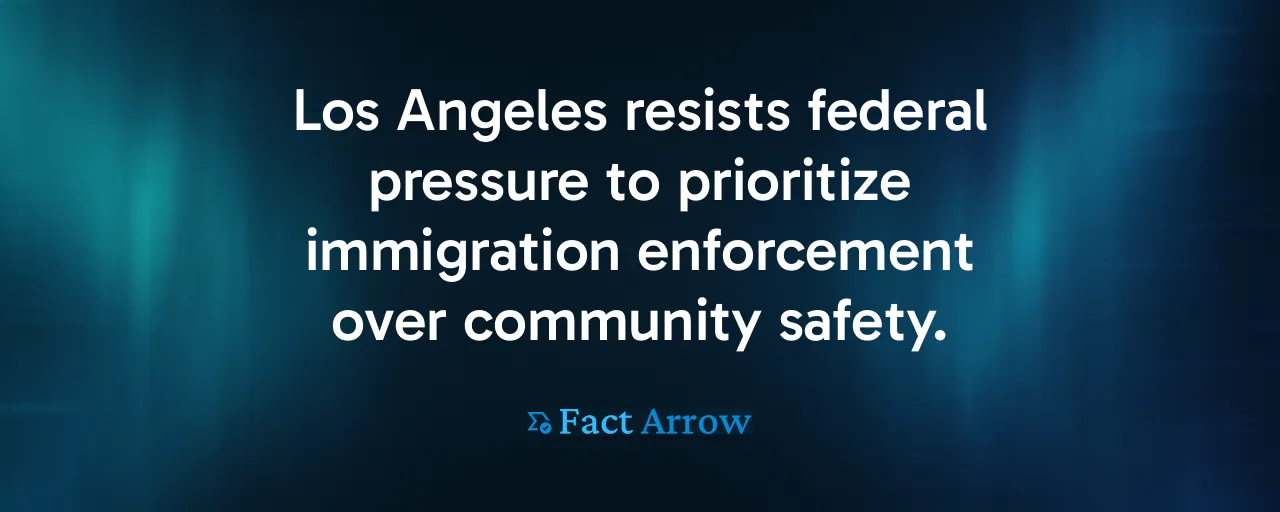A City Under Siege
Los Angeles is no stranger to bold stands, but the latest clash feels personal. On June 30, 2025, the Trump Administration filed a federal lawsuit against the city, Mayor Karen Bass, and the City Council, claiming the city's sanctuary ordinance undermines federal immigration enforcement. The legal salvo accuses Los Angeles of violating the Constitution and fueling recent unrest. For many Angelenos, the issue extends beyond legal technicalities, focusing instead on families, trust, and the kind of city they want to build.
Mayor Bass didn't flinch. She called the lawsuit political theater, a calculated move to punish cities that prioritize community over federal demands. Her defiance echoes a broader commitment to protect undocumented immigrants and mixed-status families, who make up a vital part of the city's fabric. The ordinance, formalized in December 2024, limits city resources for immigration enforcement and restricts information-sharing with federal agencies. The policy is rooted in the simple belief that safety thrives on trust, creating a more secure environment.
The stakes are high. With protests erupting in June 2025 against nationwide immigration raids and federal troops deployed to the city, tensions are palpable. The lawsuit represents a significant legal challenge and a test of whether local governments can chart their own course in the face of federal pressure. For Los Angeles, the answer is clear: the city will not back down.
Why Sanctuary Matters
Sanctuary policies aim to set priorities rather than defy the law. In Los Angeles, the focus is on keeping communities whole. By limiting cooperation with Immigration and Customs Enforcement, the city ensures local police can focus on solving crimes, rather than pursuing immigration status. Studies support this. Research from 2017 to 2024 shows sanctuary jurisdictions often have lower violent and property crime rates compared to others. The reason is that immigrants, documented or not, are more likely to report crimes or cooperate with police when they do not fear deportation.
Economic benefits are just as compelling. Sanctuary counties, including those in California, report higher median household incomes and lower unemployment. These policies protect and stabilize communities. Undocumented workers contribute to industries like construction, hospitality, and agriculture, driving growth. Tearing families apart or pushing them into the shadows risks economic ripple effects, from reduced consumer spending to disrupted labor markets.
The human cost of aggressive enforcement is undeniable. When local police act as immigration agents, trust erodes. Witnesses hesitate to come forward. Victims stay silent. Schools, healthcare providers, and businesses feel the strain as fear permeates daily life. Los Angeles' ordinance counters this by drawing a clear line, ensuring local resources serve local needs rather than federal agendas.
A Legal and Moral Fight
The Trump Administration argues that sanctuary policies violate federal authority, citing the Constitution's Supremacy Clause. They point to incidents where non-citizens, released from local jails, later committed crimes. This framing overlooks key realities. Federal law does not require cities to detain people for immigration violations, and courts have upheld this. In 2020, federal appellate rulings affirmed California's sanctuary laws, citing the Tenth Amendment's protection against federal overreach.
Los Angeles' policy is not a free pass for criminals. The ordinance allows cooperation with federal authorities in cases of serious or violent felonies. This balanced approach ensures public safety while preventing racial profiling or unwarranted detentions. Fourth Amendment concerns also loom large; warrantless detainer holds risk legal liability for cities. By standing firm, Los Angeles protects not just immigrants but the rule of law itself.
The city's stance draws on a deep historical thread. The sanctuary movement began in the 1980s, when faith communities sheltered Central American refugees. San Francisco's 1989 ordinance set a precedent, and Los Angeles has long embraced similar values. This represents a defense of local governance and human dignity.
Navigating the Road Ahead
The lawsuit's outcome remains uncertain, but the broader fight is far from over. Los Angeles faces potential cuts to federal grants for policing, housing, and infrastructure. Prolonged litigation will strain city budgets; however, the cost of compliance could be steeper, leading to fractured communities, eroded trust, and economic disruption. Advocates for immigrant rights, alongside faith groups and civil-liberties organizations, are rallying behind the city, urging expanded legal services and community outreach.
A national solution feels distant, but possibilities exist. Bipartisan proposals could clarify cooperation on violent felonies, standardize detainer procedures, or reimburse cities for compliance costs. Comprehensive immigration reform, offering legal pathways while addressing border security, could ease tensions. For now, Los Angeles leans on its resilience, drawing strength from its diverse communities and shared values.
The city's defiance sends a message: unity is its greatest asset. By protecting families and prioritizing trust, Los Angeles is fighting a lawsuit and shaping a future where every resident feels safe and valued. The road is tough, but the city's resolve is tougher.
